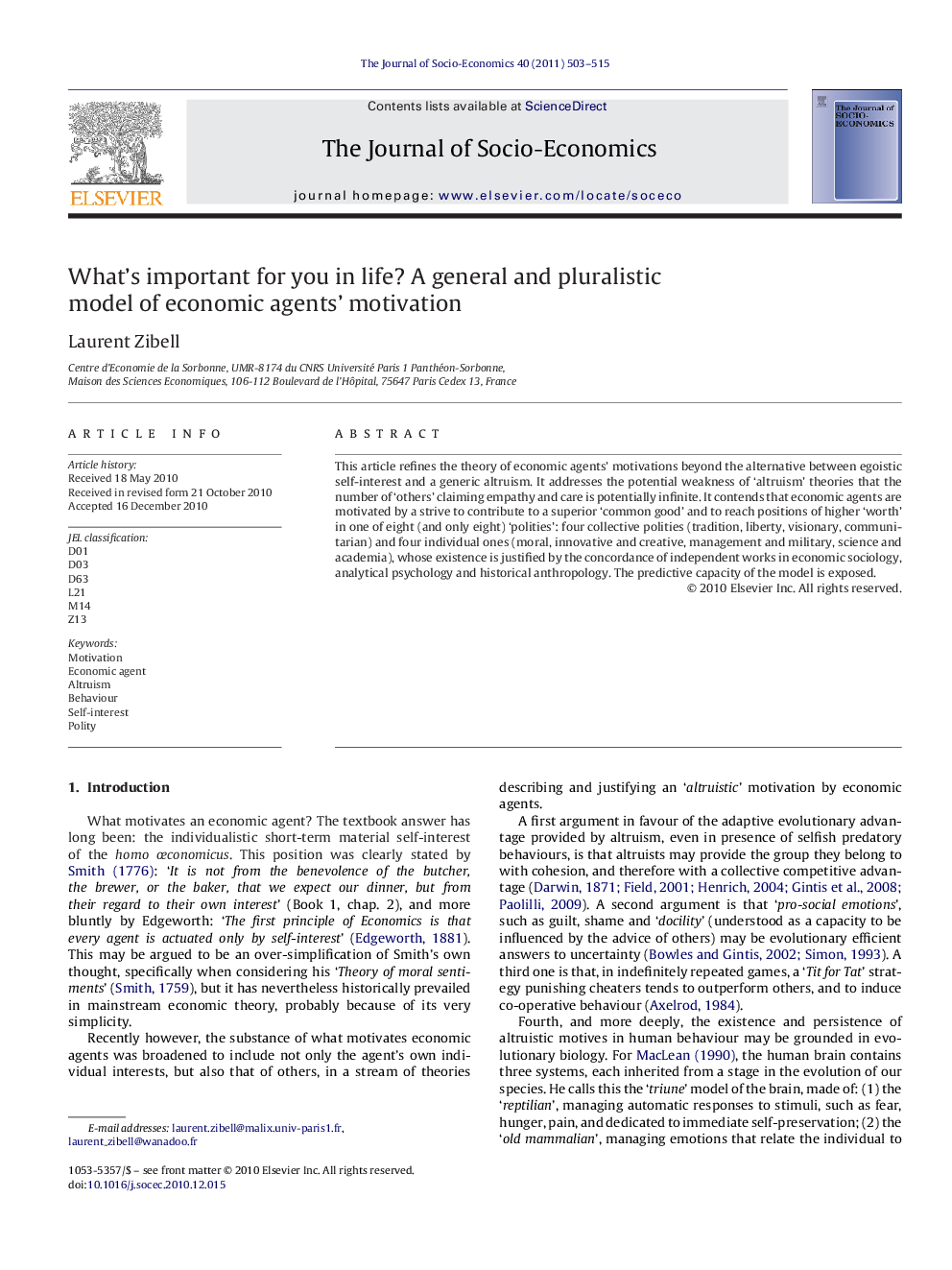| کد مقاله | کد نشریه | سال انتشار | مقاله انگلیسی | نسخه تمام متن |
|---|---|---|---|---|
| 971298 | 1479544 | 2011 | 13 صفحه PDF | دانلود رایگان |

This article refines the theory of economic agents’ motivations beyond the alternative between egoistic self-interest and a generic altruism. It addresses the potential weakness of ‘altruism’ theories that the number of ‘others’ claiming empathy and care is potentially infinite. It contends that economic agents are motivated by a strive to contribute to a superior ‘common good’ and to reach positions of higher ‘worth’ in one of eight (and only eight) ‘polities’: four collective polities (tradition, liberty, visionary, communitarian) and four individual ones (moral, innovative and creative, management and military, science and academia), whose existence is justified by the concordance of independent works in economic sociology, analytical psychology and historical anthropology. The predictive capacity of the model is exposed.
Research highlights▶ Addresses weakness of ‘altruism’ theories: infinity of ‘others’, low predictive power. ▶ Economic agents’ motivation: ‘common good’ and higher ‘worth’ in a ‘polity’. ▶ Number of ‘polities’ equal to eight (8), and eight only. ▶ Collective ‘polities’: tradition, liberty, visionary, communitarian. ▶ Individual ‘polities’: moral, innovative, management, academia.
Journal: The Journal of Socio-Economics - Volume 40, Issue 5, October 2011, Pages 503–515